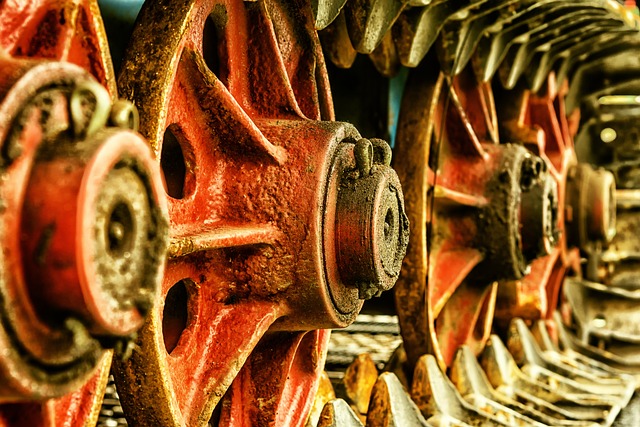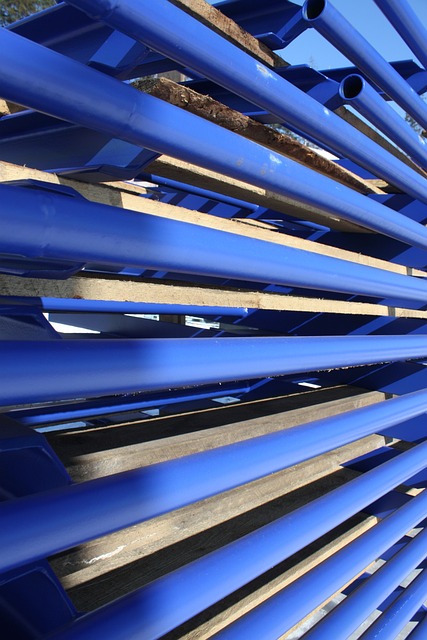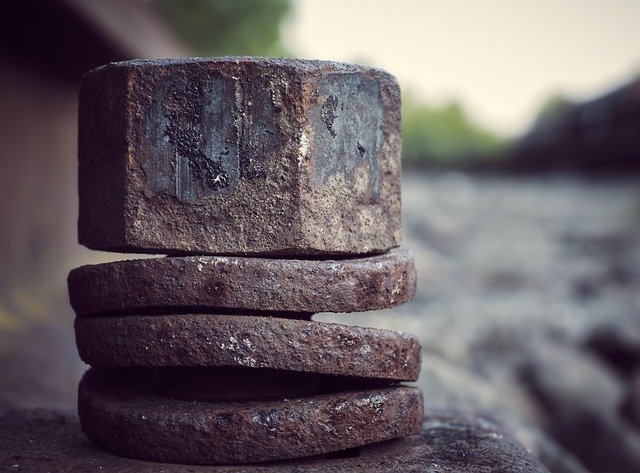The common causes of pipe corrosion are aggressive water conditions (high chlorides, carbonates, minerals), fluctuating temperatures, and moist environments. These factors accelerate metal oxidation, leading to reduced water pressure, leaks, and structural damage. Prevention strategies include regular inspections, early leak detection, protective coatings, using corrosion-resistant materials like copper or PVC, proper ventilation, and flushing pipes. For existing rusted pipes, sandblasting, chemical etching, and applying protective coatings like zinc or epoxy can restore and protect them.
Unveiling the hidden enemy within your plumbing system—pipe corrosion. This common yet insidious issue can lead to costly repairs and inconvenience. Let’s explore the leading factors behind pipe rusting, understand its impact, and discover effective solutions to prevent and treat this age-old problem. From identifying the root causes of corrosion to implementing proven prevention tactics, this guide offers practical insights for a smoother plumbing experience.
- Unveiling the Leading Factors Behind Pipe Corrosion
- Understanding the Impact and Consequences
- Effective Solutions to Prevent and Treat Pipe Rusting
Unveiling the Leading Factors Behind Pipe Corrosion

Pipes are essential components of any plumbing system, but they’re not immune to damage over time. Understanding the common causes of pipe corrosion is crucial for maintaining a reliable and efficient plumbing network. The leading factors behind pipe corrosion include exposure to aggressive water conditions, such as high levels of chlorides, carbonates, and other minerals found in hard water. These substances can accelerate corrosion by damaging the protective oxide layer that forms on metal surfaces. Additionally, varying temperature fluctuations, particularly rapid changes from hot to cold, contribute to pipe degradation by causing thermal stress, leading to cracks and eventual corrosion. Moist environments further exacerbate the issue by providing an ideal setting for corrosion-causing bacteria and fungi to thrive.
Understanding the Impact and Consequences

Rusty pipes aren’t just an unsightly nuisance; they can have serious consequences for your plumbing system and home. Beyond the visible damage, pipe corrosion can lead to reduced water pressure, leaks, and even structural damage over time. The common causes of pipe corrosion include exposure to moisture, chemical substances, and varying temperature fluctuations. These factors accelerate the natural oxidation process, turning metal pipes into rust. Understanding these root causes is the first step towards effective prevention and repair.
To mitigate the impact, homeowners should regularly inspect their plumbing for signs of corrosion, especially in older homes or areas with known water quality issues. Identifying leaks early can prevent further damage and costly repairs. Additionally, using protective coatings, regular maintenance, and high-quality pipes resistant to corrosion are proactive measures that can significantly extend the lifespan of your plumbing system.
Effective Solutions to Prevent and Treat Pipe Rusting

Rusty pipes are a common issue, but understanding the root causes can help you tackle this problem head-on. The most prevalent culprit is the element iron, which is often present in water supplies and accelerates corrosion when combined with moisture and oxygen. Over time, these factors create a chemical reaction that results in pipe rusting.
To prevent and treat this issue, consider these effective solutions: use rust-resistant materials like copper or PVC for new installations, maintain proper plumbing ventilation to minimize moisture buildup, regularly flush out pipes to remove sediment, and install water softeners to reduce the iron content in your water supply. Treating existing rusted pipes involves sandblasting or chemical etching to remove the corrosion layer, followed by coating them with protective substances like zinc or epoxy to create a barrier against future damage.
Rusty pipes aren’t just an eyesore; they can lead to significant water damage, lower home value, and expensive repairs. By understanding the common causes of pipe corrosion – such as exposure to moisture, poor material quality, and environmental factors – you can take proactive steps to prevent rust buildup. Implement effective solutions like using corrosion-resistant materials, maintaining proper ventilation, and scheduling regular inspections to keep your pipes in top condition. Don’t let rust become a recurring issue; take control today for a smoother, less stressful tomorrow.
